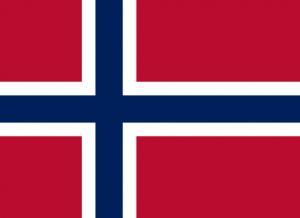Language/Norwegian-bokmal/Vocabulary/Education
Hi Norwegian Bokmål learners! 😊
In this lesson, we will cover vocabulary related to education. Whether you are a student or a teacher, this lesson will help you navigate the Norwegian education system.
With the completion of this lesson, consider investigating these related pages: How to say Good Bye? & Numbers 1 100.
Education System in Norway[edit | edit source]
Before we start, it is important to understand how the education system in Norway works. Education is free in Norway, from primary school (Barneskole) to upper secondary education (Videregående skole). After Videregående, students have the option to continue their education at universities or vocational schools.
Vocabulary[edit | edit source]
Here are some common words and phrases you might encounter in Norwegian schools:
School Types[edit | edit source]
| Norwegian Bokmål | Pronunciation | English Translation |
|---|---|---|
| Grunnskole | /ˈɡrʉnskulə/ | Primary school |
| Ungdomsskole | /'ʉŋdɔmˌskuːlə/ | Lower secondary school |
| Videregående skole | /viːdərɛˌɡoːndə skuːlə/ | Upper secondary school |
| Universitet | /ʉnɪværˈsiːtət/ | University |
| Høyskole | /ˈhøːiˌskoːlə/ | College |
Subjects[edit | edit source]
| Norwegian Bokmål | Pronunciation | English Translation |
|---|---|---|
| Norsk | /nɔʂk/ | Norwegian |
| Matte | /'mɑtːɛ/ | Mathematics |
| Engelsk | /ˈɛŋɡɛlsk/ | English |
| Naturfag | /nɑːtʉrˌfɑg/ | Science |
| Historie | /hɪsˈtɔriə/ | History |
| Samfunnsfag | /'sɑm.fʊnsfɑg/ | Social science |
| Gym | /'gy:m/ | Physical Education |
Classroom Vocabulary[edit | edit source]
Here are some of the most common phrases you might hear in a Norwegian classroom:
- Lærer: Kan du gjenta det? (Can you repeat that?)
- Student: Selvfølgelig (Sure)
- Lærer: Hva betyr dette ordet? (What does this word mean?)
- Student: Jeg vet ikke (I don't know)
- Lærer: Kan du gi meg et eksempel? (Can you give me an example?)
- Student: Ja, selvfølgelig (Yes, of course)
Dialogue[edit | edit source]
Here is a dialogue to give you an idea of how these words can be used:
- Lærer: Hei, klassen min! I dag skal vi lære om norsk historie. (Hello, my class! Today we will learn about Norwegian history.)
- Student 1: Yay! Jeg elsker historie. (Yay! I love history.)
- Lærer: Bra å høre det. La oss starte med å lære om vikingene. (Good to hear that. Let's start by learning about the Vikings.)
- Student 2: Beklager, kan du gjenta det? (Sorry, can you repeat that?)
- Lærer: Selvfølgelig. Vi skal lære om vikingene. (Sure. We will learn about the Vikings.)
- Student 3: Hva er en viking? (What is a Viking?)
- Lærer: Godt spørsmål. En Viking var en av de mennene som seilte fra Norge til andre steder i Europa og herjet og plyndrat. (Good question. A Viking was one of the men who sailed from Norway to other parts of Europe and raided and plundered.)
- Student 4: Kan du gi oss et eksempel? (Can you give us an example?)
- Lærer: Ja. Har dere hørt om Eriksson familien i Amerika? (Yes. Have you heard of the Eriksson family in America?)
Tips[edit | edit source]
If you want to improve your Norwegian Bokmål vocabulary related to education, you can also use the Polyglot Club website. Find native speakers and practice your conversation skills! You can also visit the Questions section to learn more about the language.
Sources[edit | edit source]
➡ If you have any questions, please ask them in the comments section below.
➡ Feel free to edit this wiki page if you think it can be improved. 😎
Other Lessons[edit | edit source]
- Parts of the Body
- Feelings and Emotions
- How to say Good Bye?
- Free Time Activities
- Count to 10
- Useful Sentenses
- Animal
- Idiomatic Expressions
- Beverages
- Vehicles

